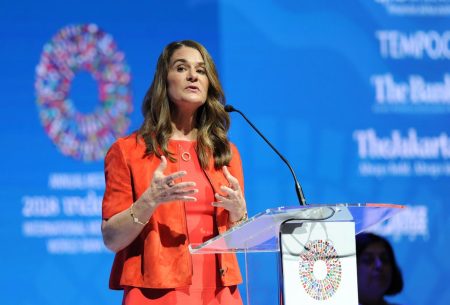The Earth Species Project, a U.S.-based nonprofit focused on decoding animal communication using AI, has received $17 million in new grants from billionaires, including $10 million from Reid Hoffman’s Aphorism Foundation and $7 million from the Waverley Street Foundation, owned by Laurene Powell Jobs. The organization plans to increase the size of its AI research team and continue studying bird vocalization patterns to aid in conservation efforts. The ultimate goal is to shift human understanding of our place in the natural world, thereby helping with climate change and biodiversity.
The organization was founded in 2018 by Aza Raskin, Britt Selvitelle, and Katie Zacarian, with the goal of enabling humans to communicate with other species by 2030. They are funding research on specific animals’ vocalization patterns, such as beluga whales, crows, and zebra finches. The organization also aims to develop a general model similar to ChatGPT for animal communication. By analyzing audio recordings of various species using machine learning techniques, they hope to identify patterns that can help decipher the meaning behind the sounds animals make.
Since its inception, the Earth Species Project has published several peer-reviewed papers and self-published additional papers related to animal communication. The organization relies on donations from billionaires, with Reid Hoffman providing $1 million annually for the past three years. Other contributors include Chris Larsen, the Internet Archive, and the Paul G. Allen Family Foundation. The recent $17 million in donations will enable the organization to hire more researchers, collect new data in the field, and advance their AI models for animal communication.
One of the main challenges for the Earth Species Project is access to training data, as they need recordings from various species to train their AI models effectively. Animal data is complex to understand, and separating individual sounds from a noisy environment presents technical challenges. Additionally, there is limited commercial funding for AI models focused on animal communication, despite the computational expenses involved. Critics argue that translating animal communications may assume similarities with human speech that may not exist.
Despite being a nonprofit, the Earth Species Project approaches its work with an entrepreneurial mindset, considering their Silicon Valley origins and funders. Aza Raskin views the recent grants as a significant milestone similar to the first major funding round for a for-profit startup. According to Raskin, the technology is ready, with biologists already using their foundational model to decode field recordings and understand animal behavior. The organization believes that with the necessary funding, they can accelerate their research and make significant advancements in deciphering animal communication.













